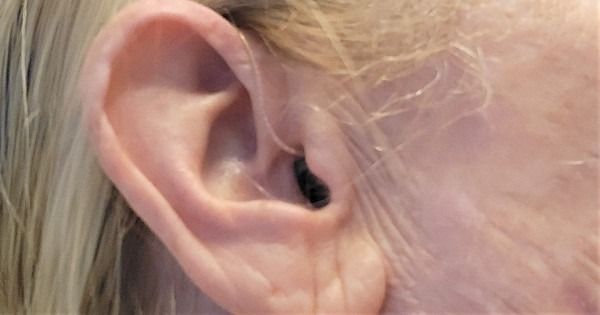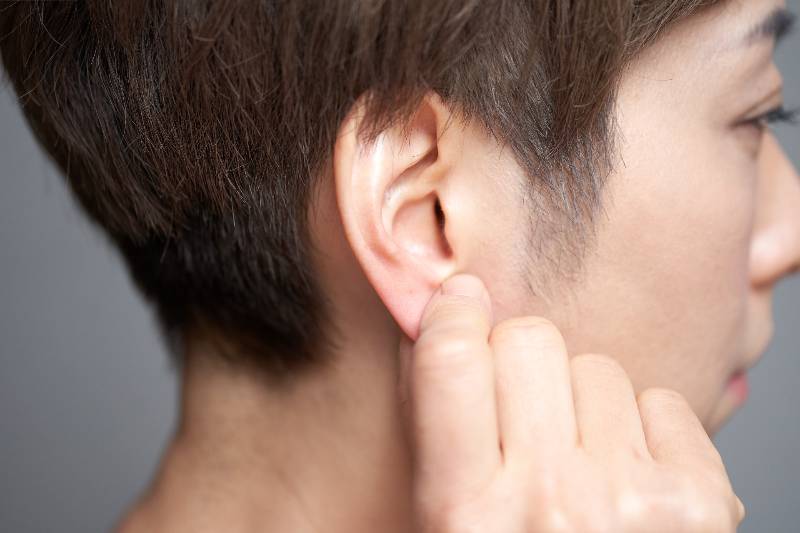Introduction
Hearing loss is a condition that affects millions of people around the world, with an estimated 466 million people experiencing hearing loss to some degree. The causes of deafness can vary widely, from genetics and aging to noise exposure and certain medical conditions. While hearing loss is often associated with aging, it can affect people of all ages, including children and young adults. In recent years, researchers have also found a potential link between loss of hearing and COVID-19, adding a new dimension to the conversation around hearing health.
In this blog post, we’ll explore the topic of loss, of hearing including the potential link between COVID-19 and hearing problems. We’ll start by examining some of the common causes and types of deafness, and discuss the various treatment options that are available. We’ll also look at some of the prevention and management strategies that can help people maintain healthy hearing and minimize the impact of hearing loss on daily life.
The link between COVID-19 and hearing loss is a relatively new area of research, and while the evidence is still being studied, it’s important for people to be aware of the potential risks. As we continue to navigate the ongoing pandemic, it’s crucial to stay proactive about hearing health and take steps to protect our ears from damage. By understanding the potential risks and knowing how to prevent and manage hearing loss, we can take charge of our hearing health and ensure that we’re able to fully engage with the world around us.
NAVIGATING THE DIFFERENT LEVELS OF DEAFNESS
Understanding Deafness
Loss of hearing s is a common condition that affects millions of people around the world. It is a broad term that refers to the inability to hear sounds or certain frequencies of sound. There are two main types of hearing loss: conductive and sensorineural. Conductive loss of hearing occurs when sound waves cannot pass through the outer or middle ear to the inner ear. This type of hearing loss is often caused by a blockage, such as earwax buildup, or damage to the eardrum or middle ear bones. Sensorineural hearing loss, on the other hand, occurs when there is damage to the inner ear or the nerves that transmit sound from the ear to the brain. This type of hearing loss is often caused by aging, noise exposure, or other factors.
The severity of deafness can vary widely, from mild to profound. Mild loss of hearing might mean that someone has difficulty hearing soft sounds or conversations in noisy environments, while profound loss of hearing might mean that someone cannot hear anything at all. Hearing loss can also affect different frequencies of sound, so some people might have trouble hearing high-pitched sounds, for example, while others might struggle with low-pitched sounds.
There are several factors that can contribute to hearing loss, including genetics, aging, noise exposure, and certain medical conditions or medications. Some people may be more prone to hearing loss due to their family history or genetics, while others may develop hearing loss as a result of exposure to loud noises over time. Other factors that can contribute to hearing loss include diabetes, heart disease, and certain medications, such as chemotherapy drugs. Understanding the underlying causes of hearing loss can be an important step in diagnosing and treating the condition, as well as preventing further damage to the ears.
The Link Between COVID and Deafness
While COVID-19 is primarily known for its respiratory symptoms, researchers have also found a potential link between the virus and loss of hearing. According to a study published in the International Journal of Audiology, some COVID-19 patients may experience sudden, sensorineural loss of hearing, which can occur when there is damage to the inner ear or the nerves that transmit sound from the ear to the brain. The study found that some COVID-19 patients with this type of loss of hearing also experienced tinnitus (ringing in the ears) or vertigo (dizziness).
The exact mechanism by which COVID-19 might contribute to loss of hearing is not yet fully understood, but there are several theories. One possibility is that the virus could cause inflammation or damage to the delicate structures of the inner ear, including the hair cells that are responsible for transmitting sound to the brain. Another possibility is that COVID-19 could affect the blood supply to the inner ear, which could lead to hearing loss. Additionally, some experts speculate that the virus could be directly attacking the nerves responsible for hearing, although more research is needed to confirm this.
It’s worth noting that while the link between COVID-19 and loss of hearing is still being studied, it appears to be relatively rare. However, for people who do experience hearing loss or other ear-related symptoms as a result of COVID-19, the impact can be significant. It’s important for people to be aware of the potential link between the virus and hearing loss, and to seek medical attention promptly if they experience any changes in their hearing or other ear-related symptoms.
Discover the Secrets of Loss of Hearing
Symptoms of Loss of Hearing
Hearing loss can have a range of symptoms, depending on the type and severity of the condition. In general, some of the most common symptoms of deafness include difficulty hearing conversations, particularly in noisy environments; the need to turn up the volume on the television or radio; and ringing, buzzing, or other noises in the ears (known as tinnitus). People with loss of hearing may also find that they have trouble hearing high-pitched sounds, such as the voices of children or women.
Another common symptom of hearing loss is a feeling of fullness or pressure in the ears, which can be caused by a blockage or infection. People with hearing loss may also experience vertigo or dizziness, particularly if the condition is affecting the inner ear. Over time, untreated hearing loss can have a number of other consequences, including social isolation, depression, and cognitive decline.
It’s important to note that not all hearing loss is sudden or obvious. Some people may experience a gradual decline in their hearing over time, which can make it harder to notice changes. That’s why it’s important to pay attention to any changes in your hearing, and to seek medical attention if you notice any symptoms. Your doctor or a hearing specialist can perform tests to determine the extent and cause of your hearing loss, and recommend appropriate treatment options.
Treatment Options for Deafness
There are several treatment options available for people with deafnesss, depending on the cause and severity of the condition. One of the most common treatments for deafness is hearing aids. These devices amplify sounds and help people hear more clearly, even in noisy environments. There are many different types of hearing aids available, including behind-the-ear, in-the-ear, and in-the-canal models, and they can be customized to suit each individual’s needs. Some hearing aids also come with advanced features like Bluetooth connectivity, which can make it easier to use phones, computers, and other devices.
For people with more severe hearing loss, cochlear implants may be an option. These devices are surgically implanted in the inner ear and help stimulate the nerves that transmit sound to the brain. Cochlear implants can be particularly effective for people who are unable to benefit from traditional hearing aids.
In some cases, medication or surgery may be recommended to treat deafness. For example, if the hearing loss is caused by an ear infection or other medical condition, antibiotics or other medications may be used to treat the underlying issue. Surgery may be an option in cases where deafness is caused by a blockage or structural issue in the ear, such as a tumor or damaged eardrum.
Overall, the best treatment for hearing loss will depend on the individual and their specific circumstances. It’s important to work with a doctor or hearing specialist to determine the most effective treatment plan, and to stay proactive about managing hearing loss to minimize its impact on daily life.
CAUSES OF HEARING LOSS
Prevention and Management of Deafness
While some types of hearing loss are unavoidable, there are several steps that people can take to reduce their risk and manage their hearing health. One of the most important ways to prevent hearing loss is to protect your ears from loud noises. This might mean wearing earplugs or other protective gear when working in noisy environments, or keeping the volume down when using headphones or earbuds. Avoiding loud noises as much as possible can help prevent damage to the delicate structures of the inner ear.
Maintaining a healthy lifestyle can also support hearing health. This might include eating a nutritious diet, exercising regularly, and avoiding smoking and excessive alcohol consumption. Additionally, getting regular checkups with a doctor or hearing specialist can help detect any hearing problems early on, which can improve the chances of successful treatment.
For people who already have deafness, there are several management strategies that can help minimize the impact on daily life. Using hearing aids or other assistive devices can make it easier to hear conversations and participate in social activities, while lip-reading or sign language can also be helpful in certain situations. It’s also important to communicate your hearing needs to friends and family, and to advocate for yourself in social situations to ensure that you’re able to fully participate and engage with others. Overall, staying proactive about hearing health and taking steps to prevent or manage hearing loss can have a positive impact on quality of life over the long term.
Conclusion
In conclusion, this blog post has explored the important topic of deafness, including the potential link between COVID-19 and hearing problems. We’ve discussed some of the common causes and types of hearing loss, as well as the various treatment options that are available. From hearing aids to cochlear implants, there are many tools and technologies that can help people manage their deafness and improve their quality of life.
We’ve also looked at some of the prevention and management strategies that can help people maintain healthy hearing and minimize the impact of hearing loss on daily life. By protecting our ears from loud noises, maintaining a healthy lifestyle, and seeking regular checkups with a doctor or hearing specialist, we can take proactive steps to support our hearing health.
While the link between COVID-19 and hearing loss is still being studied, it’s clear that this is an important area of research that deserves continued attention. By staying informed and aware of the potential risks, we can take steps to protect ourselves and our loved ones from hearing loss and other ear-related problems. By prioritizing our hearing health and taking action to prevent and manage hearing loss, we can enjoy a richer, more connected life and fully engage with the world around us.







